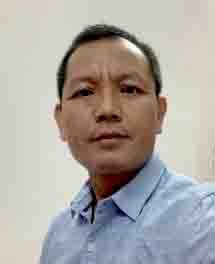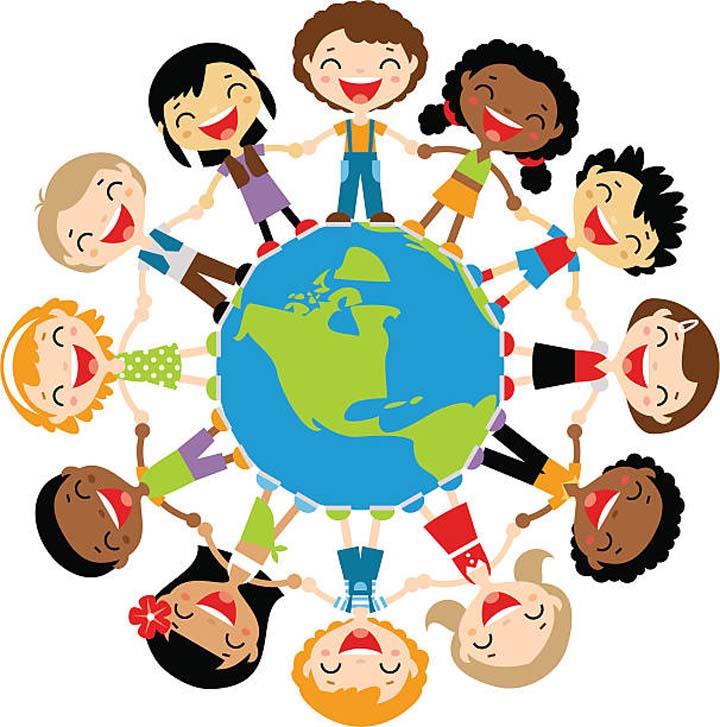Introduction
We live in a nation of seekers – seeking the divine, knowledge, philosophy, consciousness, awakening. While nature is given the title of ‘motherhood’, politics seems to hold its ‘fathers’ down the centuries. A patriarchal society like India has accorded Mahatma Gandhi – the ‘Father of the Nation’ as he was the was driving force behind the independence of India from foreign domination and the establishment of India as a free nation. This is indeed a kind and befitting gesture of gratitude shown to him. The whole world stands in awe to the Gandhian principle of non-violence. He led us from fear of colonial regime to think and reason for ourselves (freedom).
Founding fathers of the Indian constitution
More than seventy years ago, the founding fathers of the Indian republic – Mahatma Gandhi, Jawaharlal Nehru, B. R. Ambedkar, Subhas Chandra Bose and Vallabhbhai Patel – steered the new nation in a route so that it wasn’t devastated by sectarianism, casteism and authoritarianism (Rajmohan Gandhi, 2016). The secular nation we inherited is their vision and sacrifice. Although there are forces that detract from the vision of the founding fathers on secularism, the nucleus of Indian democracy rests on its secular nature. This is one important forum where voices are heard and hearts are united as one nation. The fight against sectarianism, casteism and authoritarianism continues at various fronts. Till we defeat these depravities, the vision of our founding fathers remains a challenge.
Rise of local politico-ethnic fathers
The word ‘politics’ does not merely revolve around those who are elected as MLAs and MPs; it embraces a wider range of subjects quintessential for human survival and prosperity. Politics has to do with governance of areas, minds, creation of future trajectories, building or destruction of a group of people or a nation. Northeast India is Switzerland in its topographical aesthetic but heavily armed with military forces due to its existing insurgent movements. While many insurgent groups are in a cease-fire with the Government of India (and some state Governments), the AFSPA – 1958 remains a draconian tool currently employed to ‘maintain order’ in ‘disturbed areas’. The exponential ethnic consciousness of various tribes in the Northeast strongly arose during the 1950s. This phenomenon has also elevated some traditional human champions as local politico-ethnic fathers in various states. One can take it as a consequence of colonial rule – an observational learning process. One can also argue – if the Queen was hailed during the colonial days, why not hail our local fathers as leaders. Elevating a local leader as a politico-ethnic father could signify unity for a cause; but elevating bloodstained men, systematic looters, schism creators as ‘local politico-ethnic fathers’ is certainly not a good choice for the days to come. Just as we talk about those leaders of the past, the next generation will similarly deal with us – perhaps with a sharper lens. As far as the various ethnic political scenarios are concerned, there are more politico-ethnic fathers than mothers. Perchance, this is because of the patrilineal nature of the area or just an evolutionary process of the bygone geopolitical trails.
Father of violence
Violence does not consist only in taking lives. Acts can be violent even without bloodshed or physical brawls. The worse kind of violence is depriving people of ‘the capacity to reason as a result of fear psychoses created in their minds. ‘Fear’ is the father of violence. This is depriving the fundamental ‘Right to life’ that entails the right to choose one’s life and the ability to live a dignified life. But one cannot live a dignified life while living under constant fear of losing job, livelihood, life. This is the form of violence existing in many parts of Northeast India. It is but a sure slow killer inhibiting social development and critical thinking. In the long run, this can create a ‘hero-worship cult’, ‘blind obedience’, ‘action without reason’. All these can debilitate a vibrant community.
Fathering through non-violent ways
Political talks, cease-fire agreements, face-to-face meetings are steps toward settling disagreements. But the violence which is in the form of looting, taxing, forcing, threatening, aggression, abduction, ransom money, killing, etc., create more widows, orphans, angry hearts and incurable memories. These vices are not from nature but nurtured by human beings. They affect social psychology and personality development. Human aggression largely involves the intention to inflict harm on others (Archer & Coyne, 2005) now or in the future. No one forgets the harm done to him or her or them. Fear, anger, hostility, revengeful temper, etc., are bunches of energy that may disappear for a time, but the energy never disappears in the cosmos. It will come back someday at an opportune time. So, the best way is not to create those destructive energies. Perhaps, we need people who emulate Mahatma Gandhi, Nelson Mandela, Aung Sang Suu Kyi to lead us as fathers in a non-violent way. We need inclusive people, not exclusively inclusive politico-ethnic agenda mongers.
Conclusion
Cultivation of ‘freedom of expression’ and ‘freedom to differ’ is a way of fathering. Sameness does not necessarily connote consensus. The agreement of few people is not a plebiscite. Freedom from fear is a way towards humanity. Creating ‘united minds’ is a lasting fathering. Pursuing a politico-ethnic movement without deep spirituality is a lame endeavour. Will you follow a leader who beats around a local bush (of petty issues) or a person who will expand your horizons and tell you that humans are lovely and it is possible to be a universal citizen? Fathering can assume multi-dimensional strategies and expressions.

The author is a PhD research scholar, Department of Sociology and Social Work, CHRIST (Deemed to be University), Bangalore, Karnataka, India. Email: paulhowkeep20@gmail.com











